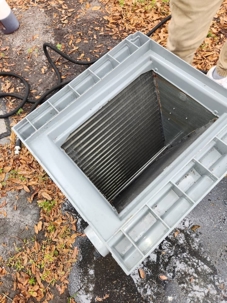Air conditioning is vital in maintaining comfort during the scorching summer months, particularly in regions with extreme heat. Split air conditioners are becoming increasingly popular among the various types of air conditioning systems due to their efficiency and convenience. However, regular servicing is essential to ensure that these systems operate optimally. This article delves into how often you should service your split air conditioner for the best performance, specifically focusing on the brand Momentum AC & Electric and its recommendations.
Understanding the Importance of Regular AC Servicing
Why Split Air Conditioners Need Periodic Maintenance
Split air conditioners have two main components: an indoor unit that cools the air and an outdoor unit that dissipates heat. Unlike traditional window units or central air conditioning systems, split systems are designed to be more energy-efficient and quieter. However, these advantages come with the necessity of regular maintenance. Without periodic servicing, split ACs can lose efficiency, leading to inadequate cooling, increased energy consumption, and potential breakdowns.
Impact of Regular Servicing on Performance and Energy Efficiency
When serviced regularly, a split air conditioner can function at peak efficiency. Regular maintenance tasks, such as cleaning filters and checking refrigerant levels, can prevent common problems that hinder performance. A well-maintained unit performs better and consumes less energy, providing financial savings on utility bills.
Section 1: Basics of Split Air Conditioner Servicing
What Does AC Servicing Involve?
AC servicing encompasses a range of tasks to ensure the efficient operation of the air conditioning system. Notably, it includes:
General Cleaning: Dust and debris accumulation can obstruct airflow and reduce efficiency. Cleaning the unit, including filters, coils, and fins, is essential.
Component Checks: To detect any signs of wear or damage, a thorough inspection of all components, such as the compressor, fans, and electrical connections, is necessary.
Repairs: Promptly addressing minor repairs and worn-out parts can prevent more significant issues and costly repairs in the future.
Types of Servicing: Preventive vs. Corrective
Understanding the types of servicing is crucial for effective maintenance.
Preventive Servicing: This involves routine inspections and cleaning tasks to prevent breakdowns. It is typically scheduled annually or biannually based on usage and manufacturer recommendations.
Corrective Servicing: This is reactive maintenance conducted to repair an issue that has already occurred. Common signs that corrective servicing is needed include unusual noises, decreased cooling, or leaks.
Components That Need Regular Servicing
Critical components of a split air conditioner that require regular attention include:
Filters: Dirty filters reduce airflow and system efficiency. They should be checked and cleaned or replaced regularly.
Condenser Coils: These coils dissipate heat from the refrigerant. Keeping them clean is essential for efficient operation.
Refrigerant Levels: Regular checks ensure the unit has the correct refrigerant charge, which is crucial for optimal cooling.
Section 2: How Often Should You Service a Split AC?
Manufacturer Recommendations for AC Servicing Frequency
Most manufacturers, including Momentum AC & Electric, recommend specific servicing intervals for their split AC units. It is crucial to consult the user manual for precise guidelines tailored to your unit. However, general recommendations typically suggest:
Annually: For units used under normal conditions or in temperate climates.
Biannually: For systems operating in extreme heat or heavy usage, such as in commercial settings.
General Rule: Annual or Biannual Servicing?
Industry experts generally agree on the following servicing frequency:
Annual Servicing: For most residential units, yearly maintenance is typically sufficient to ensure optimal performance. This includes cleaning, inspection, and minor repairs.
Biannual Servicing: A biannual servicing approach is advisable for those who extensively utilize the air conditioning system or live in harsh environments.
Seasonal Considerations
When to Service Your AC During Different Times of the Year
Pre-Summer Check: Spring is often considered the ideal time for maintenance, allowing homeowners to ensure their AC units are prepared for the demanding summer months. This proactive approach can help mitigate potential breakdowns during critical periods.
Pre-Winter Preparation: If you use your split AC for heating in winter, fall servicing can help ensure the system operates efficiently year-round.
Section 3: Signs Your Split AC Needs Immediate Servicing
Unusual Noises Coming From the AC Unit
Hearing strange noises from your split AC can indicate underlying problems. Common sounds include:
Rattling: Often related to loose components or debris within the outdoor unit.
Hissing or Whistling: This may suggest a refrigerant leak requiring immediate professional attention.
Buzzing or Humming: Often linked to electrical issues within the unit.
These sounds should never be ignored, as they can lead to severe system damage if unresolved.
Decreased Cooling Efficiency
One of the most concerning symptoms of an AC needing servicing is its inability to cool effectively. Possible reasons for this include:
Dirty Filters: Clogged filters restrict airflow, leading to inadequate cooling.
Low Refrigerant Levels: Insufficient refrigerant hampers the unit’s ability to absorb and remove heat from indoor air.
Faulty Compressor: A malfunctioning compressor compromises the overall cooling performance of the system.
Higher Energy Bills
A noticeable spike in energy bills can indicate that your AC system is working harder than necessary, often due to:
Poor Maintenance: Neglected systems tend to consume more energy.
Blockages: Accumulated dirt and dust can significantly decrease system efficiency.
Regular servicing can help maintain energy efficiency, saving money on utility bills.
Water Leaks or Excess Moisture
Water leakage from a split AC unit can lead to significant damage if not addressed promptly. Common causes of leaks include:
Clogged Condensate Drain Line: This common issue can prevent proper moisture drainage, causing overflow.
Damaged Drain Pan: Older units may develop holes or cracks in the pan, resulting in leaks.
Frozen Evaporator Coils: Caused by inadequate airflow or low refrigerant levels, a frozen coil will eventually thaw and lead to leaks.
Strange Odors Emanating From the AC
Unpleasant smells can also indicate issues within your air conditioning system. Common odors include:
Musty Smell: Often a sign of mold growth due to excess moisture.
Burning Smell: This indicates potential electrical issues and should be addressed immediately to avoid hazards.
Chemical or Sweet Odor: A sign of refrigerant leaks requiring urgent professional attention.
Section 4: Factors That Affect AC Servicing Frequency
Climate and Environment
The environmental conditions surrounding your AC unit can significantly influence the frequency of servicing. Areas with extreme humidity or high dust levels may experience:
Increased Dust Accumulation: More frequent cleaning of filters and coils may be required.
Higher Humidity Levels: Servicing may need to be conducted more often to prevent moisture-related issues.
Usage Intensity
The frequency and intensity of air conditioning usage significantly impact servicing needs. High usage can lead to:
Wear and Tear: Regular checks should be conducted to monitor the condition of the component.
More Frequent Servicing: Units running constantly in industrial or commercial settings might need monthly checks.
Indoor Air Quality
Indoor air quality plays a crucial role in the longevity of an air conditioning system. Factors affecting indoor air include:
Dust and Allergens: Higher levels demand frequent filter changes to maintain good air quality.
Smoke or Fumes: Homes with smokers may require more regular servicing due to pollutants affecting the AC system.
Section 5: The Benefits of Regular Split AC Servicing
Prolonging the Lifespan of Your AC Unit
One of the most significant advantages of servicing your air conditioning unit regularly is the extension of its lifespan.
Preventing Breakdowns: Regular maintenance can prevent minor issues from developing into more serious, costly problems.
Optimal Performance: Functions that operate smoothly contribute to longevity, minimizing the risk of premature replacement.
Maintaining Energy Efficiency
Regular servicing plays a vital role in optimizing energy usage.
Reduced Energy Costs: As the system operates efficiently, homeowners can enjoy lower energy bills from the reduced strain on the unit.
Health Benefits
Maintaining your split air conditioning system also contributes to better indoor air quality.
Improved Air Quality: Cleaner filters and coils help reduce allergens and respiratory problems.
Healthy Living Environment: A well-maintained unit helps ensure a safe and healthy space for the entire household.
Preventing Costly Repairs
Addressing minor issues through regular servicing can significantly save on more significant repair costs.
Cost Efficiency: The money spent on servicing is trivial compared to unplanned repairs that can arise from neglect.
Identifying Problems Early: Regular servicing allows technicians to discover and fix minor issues before they escalate.
Section 6: DIY Maintenance Tips vs. Professional Servicing
What You Can Do at Home
Homeowners can undertake several basic maintenance tasks to keep their split AC units running smoothly:
Cleaning Filters: Make it a habit to check and clean or replace filters every 1-3 months.
Checking Drainage: Ensure the outdoor unit’s drainpipes are free from blockages.
When to Call a Professional
Certain services are best left to trained technicians due to the complexity and risk involved:
Component Inspections: Call a professional for assistance if any unusual noises or smells persist.
Electrical Issues: Only trained HVAC professionals should handle electrical components to prevent safety hazards.
Frequently Asked Questions (FAQs)
How Can I Tell If My AC Needs Servicing Before the Recommended Time?
It’s essential to monitor for unusual noises, decreased performance, or unexpected increases in energy bills, which are signs that your AC may need immediate attention.
Is It Safe to Perform AC Maintenance by Myself?
While basic tasks like changing filters can be done by homeowners, others, especially those involving electrical or refrigerant issues, should be handled by professionals.
How Much Does Professional AC Servicing Cost?
The average cost for annual AC servicing is between $70 and $250, with varying prices depending on location and specific service needs.
Does Skipping Regular Servicing Void My Warranty?
Most warranties require regular maintenance. Neglecting this can cause the warranty to become void, resulting in out-of-pocket repair expenses.
What Happens If I Don’t Service My AC for a Long Time?
Neglecting servicing can result in decreased performance, increased energy costs, frequent breakdowns, and a significantly shortened lifespan for your AC unit.
Are There Specific Parts That Need Replacing During Servicing?
During servicing, filters, worn belts, and sometimes capacitors may need replacement depending on their condition and the system’s age.
Can Regular Servicing Improve My AC’s Cooling Speed?
Regular servicing correlates with improved efficiency and cooling performance, as clean filters and coils help the system function optimally.
Does AC Servicing Include Refrigerant Recharging?
Typically, refrigerant levels are checked during servicing. A recharge is necessary to maintain cooling efficiency if low levels are detected.
Can I Run My Split AC Year-Round Without Increasing Servicing Needs?
While it is possible to run the system year-round, this may increase the frequency of needed servicing due to increased wear on components.
Conclusion
Final Thoughts on Split AC Servicing
Incorporating basic DIY maintenance tasks while knowing when to call in professionals for extensive checks will help ensure your system runs efficiently for years. Being proactive about AC maintenance allows you to enjoy a comfortable indoor environment while minimizing energy costs and safeguarding your investment.

